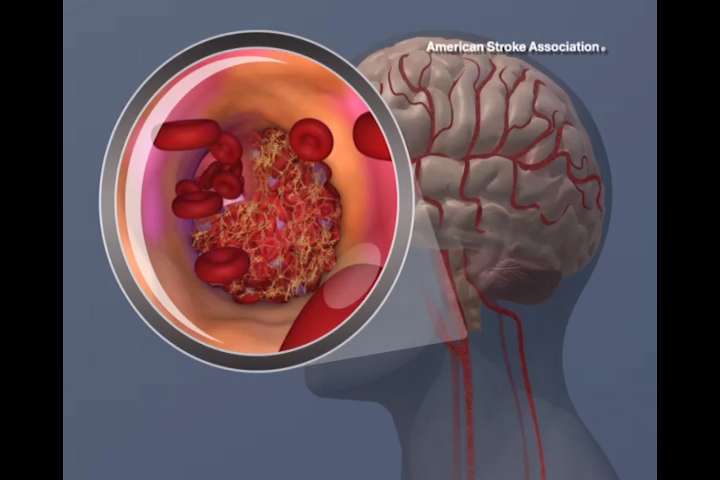

Stroke experts have identified how radiomics, an emerging image-quantifying technology, can be used to extract biomarkers from clinical brain MRI scans in stroke patients and estimate a patient’s relative “brain age.” The technique demonstrates that using relative brain age, rather than chronological age, can enhance stroke surveillance and improve predictions on post-stroke recovery.
The study, presented today at the European Stroke Organisation Conference (ESOC 2022) analyzed 4,163 ischemic stroke patients across the US and Europe. It showed how stroke patients with “older-appearing” brains, characterized by a higher predicted brain age than chronological age, were more likely to suffer from hypertension, diabetes mellitus, or have a history of smoking or prior stroke.
Patients with older-appearing brains were also less likely to achieve favorable post-stroke outcomes in comparison with their younger-appearing-brain counterparts.
Led by Dr. Martin Bretzner from Harvard Medical School (Boston, U.S.), the research team considered that while chronological age measures the amount of time a person has lived, it is less likely to precisely capture how well a patient has aged. By estimating the age of a patient’s brain, this novel biomarker provides insight into the resilience of a brain to time and cardiovascular risk factors, and how well patients recover from stroke.
The technique—radiomics—leverages advanced mathematical analysis to explore neuroimaging data available to clinicians, allowing experts to predict patients’ relative brain age compared to other stroke survivors, and analyze their overall brain health.
“Age is one of the most influential determinants of post-stroke outcomes, but little is known about the impact of neuroimaging-derived biological ‘brain age,'” commented Dr. Martin Bretzner. “Our results show that quantifying relative brain age in stroke patients can be beneficial in assessing a patient’s brain health globally, and useful in predicting how well the patient will recover from a stroke. It would also be very easy to communicate on this biomarker with clinicians and patients, as everyone instinctively understand[s] the negative implications of an accelerated brain aging process.”
The study found that relative brain age impacted stroke outcomes independently from chronological age and stroke severity. Having previously suffered from a stroke was the most influential clinical factor that impacted relative brain age, followed by diabetes.
According to research, one in four stroke survivors will have another stroke, and yet up to 80% might be prevented with the right treatments and lifestyle changes. The number of people living with stroke is estimated to rise by 27% between 2017 and 2047 in the European Union, mainly due to an increase in the number of people over 70.
“These findings stress the importance of minimizing cardiovascular risk factors, and also highlight how cardiovascular health and brain health are tightly intertwined,” added Dr. Bretzner. “Identifying potentially modifiable risk factors that impact brain health by using radiomics and relative brain age as a biomarker could lead to the development of stroke prevention interventions and aid recovery.
“We hope that this research will serve as a support to identify fragile stroke patients that require more intensive prevention techniques, treatments and surveillance in the future.”
New study links gut microbiota strains with more severe strokes and poorer post-stroke recovery
More information:
Radiomics derived brain age predicts functional outcome after acute ischemic stroke, presented at the European Stroke Organisation Conference, 5 May 2022.
Provided by
European Stroke Organisation
Citation:
‘Brain-age’ biomarkers predict stroke recovery more accurately than chronological age, new study shows (2022, May 4)
retrieved 4 May 2022
from https://medicalxpress.com/news/2022-05-brain-age-biomarkers-recovery-accurately-chronological.html
This document is subject to copyright. Apart from any fair dealing for the purpose of private study or research, no
part may be reproduced without the written permission. The content is provided for information purposes only.